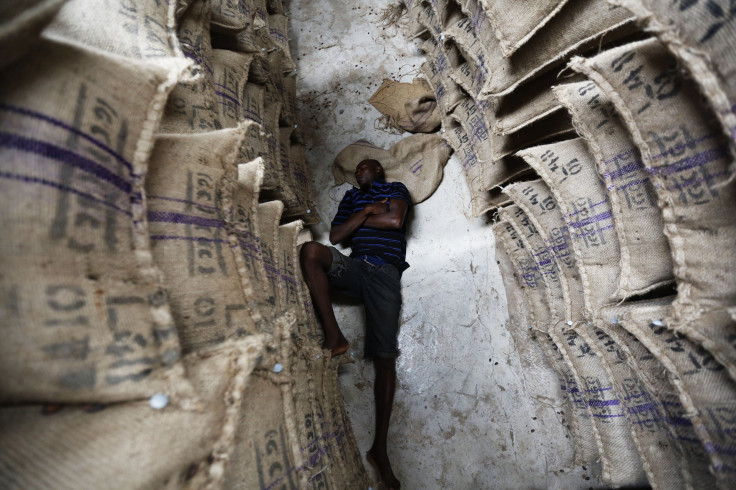Ebola Outbreak Threatens Chocolate Production, But Forces Refocusing Of Priorities

First, Ebola claimed the lives of more than 4,000 people on three continents. And now, with localized cocoa production falling, it’s causing the World Cocoa Foundation (WCF) to rush in, extending its philanthropy in the name of all West African families looking to make an honest living by harvesting cocoa beans.
The WCF, an association of about 115 companies united in their mission to support cocoa farming, will announce on Wednesday, Oct. 15, its fundraising plans to help people who grow their crop in Ebola-stricken areas, particularly the Ivory Coast and other parts of West Africa. The region produces 69 percent of the world’s cocoa; although, research suggests the idealized picture of humble families harvesting this cocoa is a dangerous misconception, and it’s putting young lives at risk.
By and large, current efforts to contain the virus haven't bode well for the fringe group, says Nicolas Cook, African Affairs Generalist of the Congressional Research Office in Washington D.C. “With regard to such efforts, any children engaged in forced labor — given their socially marginalized and subordinated positions, and due to the threat of legal sanctions on those controlling them — would arguably be among the least likely population subgroups to benefit from containment efforts or disease interventions,” he told Medical Daily.
Since the virus first gained traction in December 2013, its move into Liberia and later into other West African countries, such as Sierra Leone and Lagos, has been met with great, if frustrated, force. On Sept. 30, the Centers for Disease Control and Prevention announced a patient in Dallas had been infected, marking the first case in the U.S. But back in Africa, the story has been grim for nearly a decade.
In 2005, the International Labor Office conducted a survey that found some 284,000 children were employed to work the cocoa fields, with 200,000 of them working in the Ivory Coast alone. Of those children, 153,000 applied pesticides without protective equipment, 64 percent were under the age of 14, and the majority used machetes to clear the fields. Most came from poor families, who sold their children away under the assumption they’d see steady income from the child’s work. But more than 12,000 of the children surveyed in the Ivory Coast said they had no family in the immediate area, suggesting they were trafficked.
With Ebola’s constant threat looming large, cocoa production is beginning to suffer, as the impoverished workers fall to the back of the line in countries that already lack health care infrastructure. The disadvantaged youth will only see greater inequity now that the system is under pressure, Cook says.
Meanwhile, Hershey’s director of corporate communications Jeff Beckman reassures CBS MoneyWatch that, from a business standpoint, everything is running smoothly. "Our suppliers have assured us they will be able to continue to supply our cocoa orders without interruption,” he said, “even if the disease begins to impact the major cocoa-growing countries in the region.”
It’s not just the case that Ebola may threaten the lives and livelihoods of countless West Africans, but that these populations are the least likely to receive help and the least likely to have the capacity to help themselves. “If an outbreak of any significance were to occur,” Cook said, “[Ivory Coast] (like arguably any West African country, given generally weak public health systems in the region) would likely struggle to contain it.”
Ultimately, cocoa beans are an afterthought. By the time major chocolate companies, like those consorted inside the WCF, feel major chokeholds on their ability to harvest and import cocoa, Ebola will have already exacted a more devastating toll. A chocolate bar rising in price by a matter of cents only indicates damage already done.
For Cook, the area most responsible for cocoa production is already vulnerable. It may just be a matter of time. “There is likely a high probability that Ebola cases will be imported into cocoa growing areas of western [Ivory Coast] from either Liberia or Guinea,” he said. “Whether any cases generate a multi-case outbreak will depend on national preparedness and local public education and awareness about Ebola symptoms, medically appropriate responses, and prevention.”



























